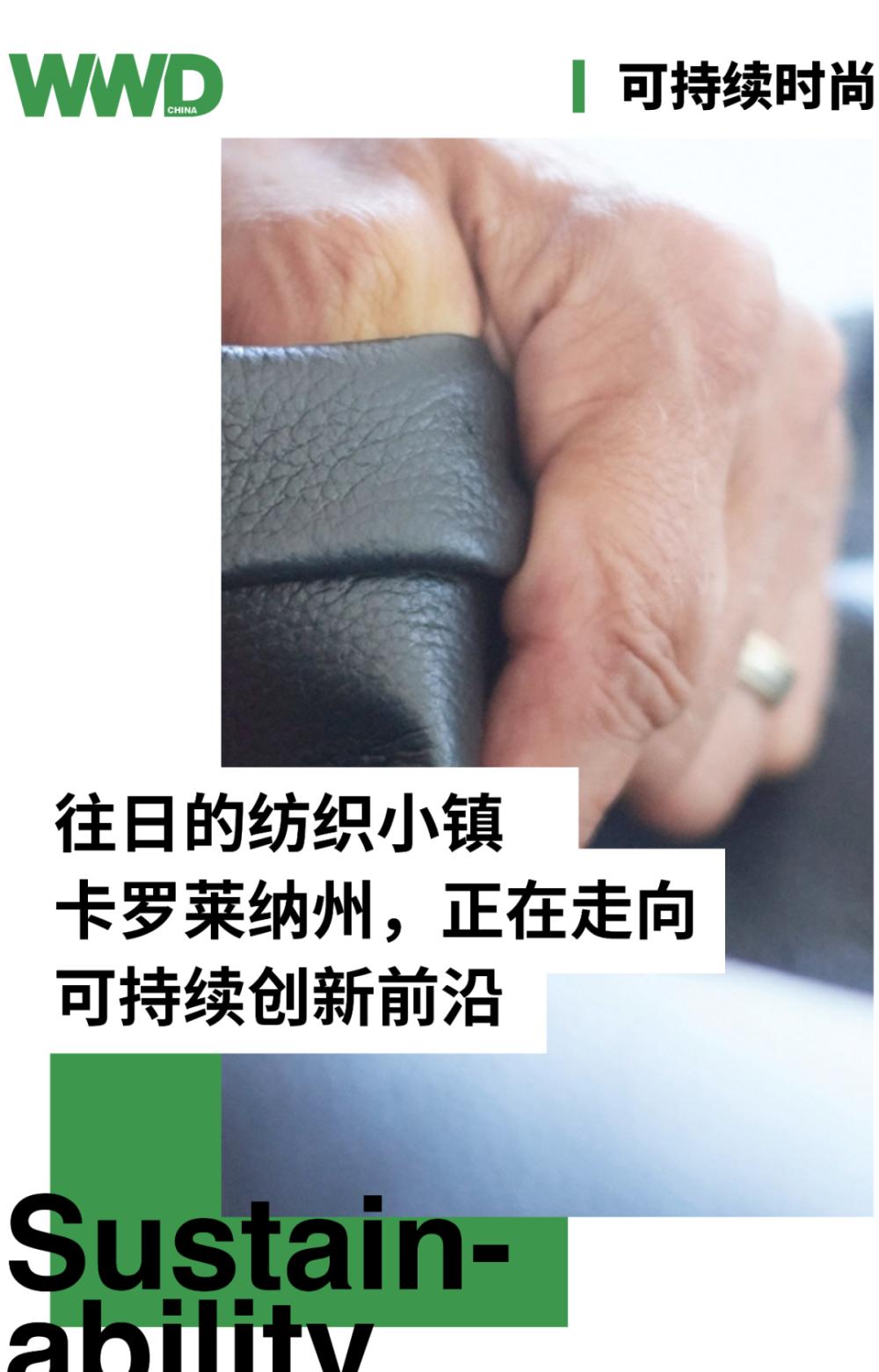
According to the Textile Exchange, 54% of the total increase in global fiber production last year was fossil-based synthetic fibers, of which nearly 61 million tons of polyester fiber were produced, up from 57 million tons in 2020.
In fiscal 2022, recycled, synthetic yarn producer Unifi sold only 37% of its yarn worldwide, from its eco-friendly material brand Repreve. Unifi CEO Eddie Ingle has publicly announced plans to increase the proportion of environmentally friendly yarns to 50% by 2025.
Eddie Ingle said: "The fact that companies such as Walmart have moved part of their supply chains to the Carolinas in the southern United States is exciting news for the fashion industry. For example, carbon fiber, which is widely used in aerospace, clothing and sports equipment, as well as the manufacture of non-woven fabrics, the development of new textile technology will play a greater role in the fashion textile industry. ”
Keel Labs (formerly AlgiKnit) in Morrisville, North Carolina, has been looking for a new material to replace polyester, launching its flagship product "Kelsun", a seaweed-based yarn with a carbon footprint far lower than traditional fibers, which can greatly alleviate the environmental pollution problem of the fashion industry.
Driven by a new trend to explore new ocean resources, Keel Labs aims to be an incubator for the next generation of climate solutions. Tessa Callaghan, co-founder and CEO of the company, said, "We started with fiber innovation and continue to expand into other areas. In the future, we will use the power of the ocean and nature to bring sustainable materials into different industries and applications, and repair the relationship between humans and natural ecosystems. ”
In Union in South Carolina, bio-based materials manufacturer MycoWorks, which focuses on producing vegan leather innovations, is attracting attention for its partnerships with brands such as Hermès.
Notably, MycoWorks' $107 million facility in Union County, South Carolina, provides about 400 jobs in production, operations, and engineering, including biotechnology engineers, manufacturing specialists, and scientists.
Doug Hardesty, Chief Operating Officer of MycoWorks, said, "Our presence will play a key role in improving the quality of life in communities for decades to come. Union is also conducting sustainability courses at local colleges, such as in-depth research on mycelium and how MycoWorks makes fine bacterial filament materials.
Evrnu, a recycled materials manufacturer in Spartanburg, South Carolina, has long been working to liquefy garment waste into slurry to produce high-performance yarn. Currently, the company's new plant in Spartanburg has an annual capacity of 17,000 tons of slurry. Many companies, represented by Evrnu, are gradually leading the innovation of environmentally friendly textile technology and promoting this technology all over the world.
On the basis of improving the environmental protection of clothing design, many environmentally friendly material innovation enterprises are also establishing their increasingly mature "collection, classification and recycling" systems.
"In fact, recycling a garment made of 100% polyester is not difficult, and although there is still a lack of proper infrastructure to make the most of recycled resources, the system is already underway," says Ingle. ”
TS Designs operates the South's last remaining garment dyeing factory, using marigolds grown at the Fonta Flora brewery to make naturally dyed beanies. Eric Henry, president of TS Designs, said, "North Carolina connects agriculture and apparel to produce eco-friendly clothing, as evidenced by TS Design's natural dyed products. ”
Opie Way is a manufacturer of minimalist shoes. Opie Way's vegetatively tanned leather and textile materials are sourced from the United States, many of its material manufacturers are located within 200 miles of Opie Way's North Carolina facility, and the company has launched the "Re-Sole" program to restore shoes. WWD
Written by Kaley Roshitsh
Edit Ivy, yalta
Image source: Web